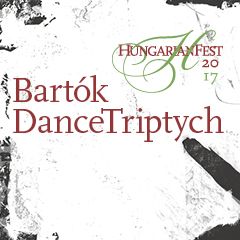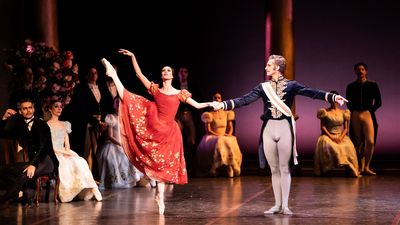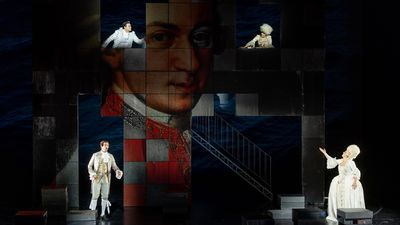
As part of the HungarianFest organised by the Hungarian State Opera, the new production entitled Bartók DanceTriptych promises to be a unique treat for our dance-loving viewers. Three one-act dance pieces composed by Béla Bartók are presented in one evening, each of them choreographed by a different artist. The Bartók DanceTriptych therefore will be a trio in terms of not only the number of works, but of the featured dance styles as well.
On the 100th anniversary of the premiere of Bartók’s first dramatic work, composed to a libretto by Béla Balázs, a brand-new choreography of The Wooden Prince returned to the stage of the Opera on 12 May 2017, following in the tradition of Ottó Zöbisch (1917), János Cieplinsky (1935) and Gyula Harangozó, whose 1939 version already featured more modern elements. Each new interpretation attempts to take a step in the direction of modernity, to resolve or even emphasise the contradiction straining between the childlike tale and the sophisticated music. This task was undertaken by internationally recognised dancer and choreographer Pál Frenák. He staged the piece in a completely new creative work, a collaboration between the contemporary dancers from Compagnie Pal Frenak and the members of the Hungarian National Ballet.
After the anniversary performance, Frenák’s first choreography for the Hungarian National Ballet becomes part of the Bartók DanceTriptych programme, which in addition to the new The Wooden Prince, will include another new work. Bartók composed Dance Suite for the 50th anniversary (1923) of the unification of Pest, Buda and Óbuda, and it was premiered by the Budapest Philharmonic Society Orchestra, which then, as now, was made up of musicians from the Opera. The music was inspired by dance themes, as the title shows. Now a new choreography has been created, which follows the special features of the music and combines the power of ballet and folk dance, for a co-production of the Hungarian National Ballet and the Duna Art Ensemble – for the first time in the history of performing the ballet, as conceptualised by Harangozó Prize-winner Zsolt Juhász.
The evening will also include a revival of László Seregi’s choreography for The Miraculous Mandarin, who created his work in 1970. His intention was to stage a more modern version both in movement and visual concept. The dancers wore leather pants and jackets, the stage was lit by streetlights, and the production also included sirens. The 2017 revival remains faithful to the legendary choreographer’s vision, even the costumes have been recreated exactly as they had been first designed.
Premiere: 28 May 2017, 7 p.m. | Opera House
Further dates: 28, 31 May, 01, 04 June 2017



